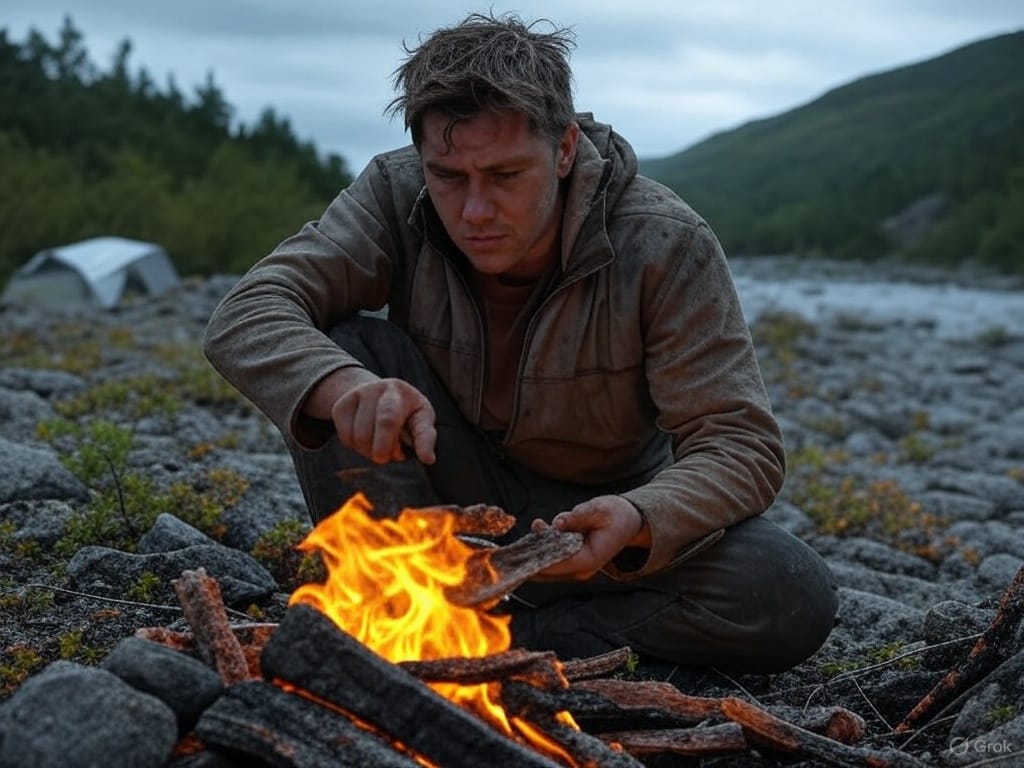Body or Mind: What Breaks First?
In a long-term survival scenario, mastering fire, water, shelter, and food, while building physical and mental resilience, can mean the difference between breaking down or thriving.

In a long-term survival scenario, one question looms large: what will break first—your body or your mind? The answer isn’t straightforward. It depends on the individual, their preparation, and the circumstances they face. Some may succumb to physical exhaustion, malnutrition, or injury, while others might falter under the crushing weight of mental stress, fear, or despair. The key to enduring lies in preparation, resilience, and a balanced approach to strengthening both body and mind.
The Body vs. The Mind: A Delicate Balance
Your body is a machine, but it’s only as strong as the fuel and care you provide. Starvation, dehydration, exposure to the elements, or untreated injuries can quickly erode physical health. Without adequate shelter, clean water, food, and warmth, even the fittest individuals will struggle to survive long-term.Yet, the mind is equally vulnerable. Fear, isolation, and uncertainty can unravel even the toughest survivors. Panic leads to poor decisions, and hopelessness can sap the will to keep going. In extreme situations, mental breakdowns can be as deadly as physical ones. The interplay between body and mind is critical—physical hardship can weaken mental resolve, and mental collapse can prevent you from taking care of your body.
The Four Pillars of Survival: Hard Skills to Master
To tip the scales in your favor, focus on mastering four essential hard skills: fire, water, shelter, and food. These are the foundation of survival and will keep your body functioning in the harshest conditions.
- Fire: Fire provides warmth, a means to cook food, and a way to purify water. It also boosts morale, offering psychological comfort in dark, cold moments. Practice building and maintaining a fire in various conditions—wet, windy, or with limited resources.
- Water: Dehydration can kill in days. Learn to locate, collect, and purify water using natural sources, filters, or boiling. Always prioritize water security in any survival plan.
- Shelter: Exposure to extreme weather can lead to hypothermia or heatstroke. Master building shelters using natural materials or portable gear to protect yourself from the elements.
- Food: While you can survive weeks without food, malnutrition weakens both body and mind. Learn to forage, hunt, trap, or fish, and understand which plants or animals are safe to eat in your environment.
By drilling these skills in training, you’ll build confidence and muscle memory, ensuring you can act decisively when it matters most.
Physical Fitness: The Body’s Armor
Survival demands physical resilience. A fit body can endure long treks, carry heavy loads, and recover from strain. Regular exercise—focusing on endurance, strength, and flexibility—prepares you for the physical demands of survival. Cardiovascular fitness aids in stamina, while strength training helps with tasks like building shelters or carrying supplies. Don’t neglect injury prevention; learning basic first aid and mobility exercises can keep you functional.
Mental Fortitude: The Mind’s Shield
Even with a strong body and survival skills, your mind can be your greatest ally or worst enemy. Stress management is a critical skill in high-stakes situations. Techniques like deep breathing, meditation, or visualization can calm your nerves and sharpen your focus. Practice these in low-pressure settings so they become second nature.
Another mental tool is adaptability. Survival often requires quick thinking and creative problem-solving. Train yourself to stay calm under pressure by simulating stressful scenarios in your preparation—timed challenges or practicing skills in adverse conditions can mimic real-world chaos.
Finally, cultivate a sense of purpose. Whether it’s the drive to reunite with loved ones or a personal commitment to survive, a strong “why” can keep you going when hope fades.
Preparation is Your Edge
The interplay of physical and mental resilience determines who survives and who doesn’t. By mastering the hard skills of fire, water, shelter, and food, staying physically fit, and building mental toughness, you create a robust framework for survival. Training in these areas doesn’t just prepare you for the worst—it instills confidence and clarity that carry over into everyday life.
In a real survival situation, neither your body nor your mind needs to break. With preparation, you can endure the unimaginable.





